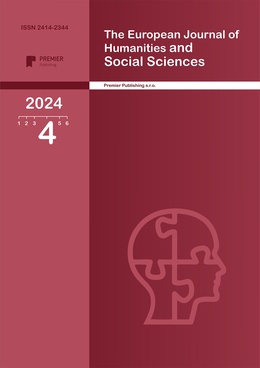An Enduring Tradition: Examining Intersections of Confucianism, the Internet, and Chinese Censorship Strategy
Authors
Adalia X. Wen

Share
Annotation
In the West, criticism of Chinese censorship has long prompted extensive research and reporting on the scope, aims, and methods behind the elaborate apparatus. Beyond political motivations, Chinese censorship’s stark contrast to the Western emphasis on free speech has also sparked inquiry into the cultural influences shaping the Chinese government’s inclination towards stringent censorship. This paper examines the role of Confucianism in influencing Chinese censorship decisions, specifically within the realm of the Chinese Internet over the past decade. It argues that the Chinese government’s commitment to creating the image of a harmonious Confucian society has driven an increase in media censorship to counter the perceived disruptive effects of the Internet. Three cases studies of internet censorship—relating to the feminist movement of the 2010s, criticism of health policies during the COVID pandemic, and criticism of economic policy during the economic slowdown of 2023-24—are analyzed to reveal the pervasiveness of Confucian theory in the rationale behind censorship. Though in no way does Confucianism fully explain the nature of the Chinese government and its proclivity for censorship, it continues to have a visible impact on the actions of the Chinese government, proving its enduring centrality in China's identity.
Keywords
Authors
Adalia X. Wen

Share
References:
Richey, K. (n.d.). Confucius. In Internet Encyclopedia of Philosophy. May 31, 2024, https://iep.utm.edu/confucius/
Rui, G. (2021, Aug. 25). “Picking quarrels and provoking trouble”: how China’s catch-all crime muzzles dissent. The South China Morning Post. https://www.scmp.com/news/china/politics/article/3146188/picking-quarrels-and-provoking-trouble-how-chinas-catch-all
Wang, Z. (2019). Feminist Struggles in a Changing China. A., Basu (Ed.), Women’s Movements in the Global Era: The Power of Local Feminisms (2nd ed., pp. 155-181). New York, NY: Routledge, Taylor & Francis Group.
Xu, N. (2024, Feb. 24). China’s feminists walk a tightrope. Index on Censorship. https://www.indexoncensorship.org/2024/02/chinas-feminists-walk-a-tightrope/.
Zhang, H. (2022, Aug. 29). The Censorship Machine Erasing China’s Feminist Movement. The New Yorker. https://www.newyorker.com/news/news-desk/the-censorship-machine-erasing-chinas-feminist-movement
Zhang, W. (2023, Sep. 26). Heavily persecuted, highly influential: China’s online feminist revolution. The Guardian. https://www.theguardian.com/world/2022/aug/29/china-tangshan-restaurant-attack-on-women-viral-video-people-prosecuted
Zhong, R., Mozur, P., Kao, J. & Krolik, A. (2020, Dec. 19). No “Negative” News: How China Censored the Coronavirus. The New York Times. https://www.nytimes.com/2020/12/19/technology/china-coronavirus-censorship.html


